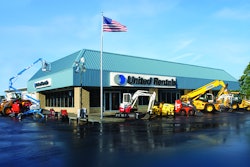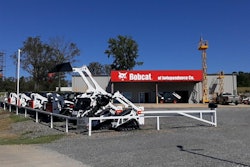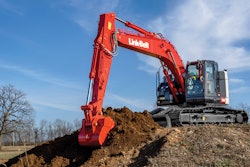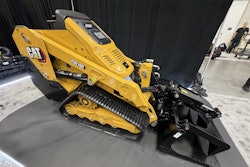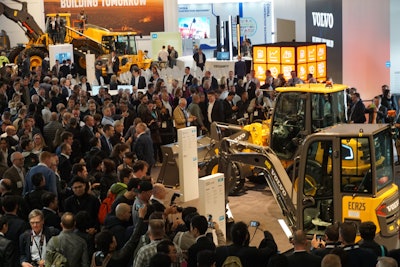 Volvo CE’s Bauma announcement of its electric compact excavator and compact wheel loader.
Volvo CE’s Bauma announcement of its electric compact excavator and compact wheel loader.Volvo Construction Equipment, saying “the long period of strong demand growth in the market for construction equipment came to an end in the third quarter of 2019,” announced that its global sales dropped by 4 percent in the quarter.
The picture was much brighter in North America, however, which saw an increase of 7 percent during the quarter over last year, prompted by the demand of large excavators, haulers and wheel loaders.
Other geographical bright spots included South America (up 10 percent due primarily to growth in Brazil) and China (up 7 percent in part due to increased sales of compact equipment).
 Volvo CE chart showing net sales by market area in millions of Swedish Krona (SEK).
Volvo CE chart showing net sales by market area in millions of Swedish Krona (SEK).Net sales decreased to SEK 17.9 billion ($1.8 billion US) compared to SEK 18.6 billion ($2 billion US) during the third quarter 2018. Net order intake decreased by 9 percent in the quarter compared the same period last year. Deliveries decreased by 2 percent, to 16,460 machines.
“After several years of high market levels, demand for construction equipment is slowing down,” commented Melker Jernberg, president of Volvo CE. “Although many markets are coming off their previous high levels, we expect the underlying need for infrastructure development in many markets to support the industry in the longer term.”
“Profitability was hampered by brand, market and product mix, as well as higher R&D and selling expenses,” said the company in a release.
Autonomous electric hauler goes commercial
As a postscript to the 3Q announcement, Volvo CE also said it had signed a contract for its first commercial pilot of its autonomous battery-electric load carrier. The trials will be conducted with customer Harsco Environmental in Sweden, and represent the next stage in the process of industrializing the technology.
The HX2 autonomous hauler prototype was cited as an example of the type of equipment that would be tested and demonstrated in Volvo’s new 111-acre expansion at its Eskilstuna, Sweden facility.
Harsco, based in Camp Hill, Pennsylvania, describes itself as providing “environmental solutions for industrial and specialty waste streams,” and produces aggregates and road building materials among other products. It has 11,000 employees and operates in 30 countries.

